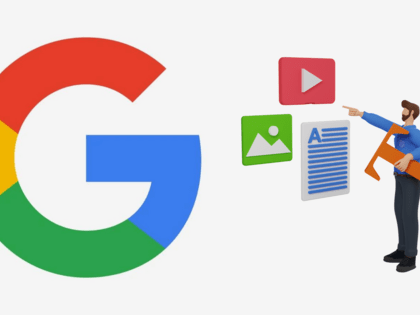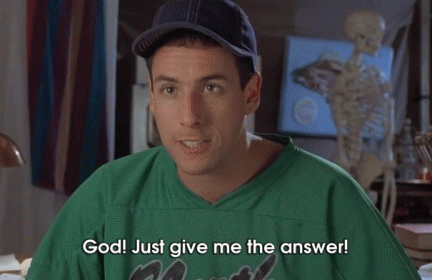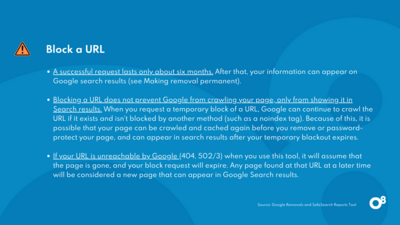Google’s Helpful Content Update: Must-Know SEO Tips for 2025

How often have you Googled a question or topic and clicked through several links before you found what you were looking for? Or maybe you never found the information at all.
It’s so frustrating.

Google’s new helpful content update aims to solve this problem. The search engine wants to weed out content that ranks high with little value. The goal is to better match users with high-quality content that delivers a satisfying experience.
Let’s go over this update and what it means for content creators. Then we’ll explain what to do with unhelpful content and how to create valuable content in the future.
What Is Google's Helpful Content Update?
Looking back into 2023, google made five algorithm updates announcing they would be targeting low-quality content marketing for search engines, not people. To summarize, the content Google is going after is content that lacks expertise, authoritativeness, or trustworthiness (E-A-T). A search engine-first article may rank high in search engine results pages (SERPs) and get a lot of search traffic. But it doesn't answer the user's question, leaves them wanting more, and forces them to keep clicking.
In practice, Google began running site-wide ranking signals to classify websites with unhelpful content. In the spirit of continuous optimization, this update doesn't refresh occasionally—it's ongoing and encompasses existing and new websites. They stated this automated process uses a machine-learning model. "We'll keep refining how it works," said Danny Sullivan, Google's public liaison of search. "Directionally, the guidance we've given is what SEOs and creators should be considering."
Google said if the new signal classifies your website as unhelpful, recovery won't be swift. Ranking updates could take months after you remove unhelpful content or improve your content writing for Google.
Now, in March 2024, Google has released a series of new Helpful Content Updates, signaling a major overhaul aimed at enhancing the quality and relevance of search results. This specific update comes in response to the rising volume of AI-generated content, pushing marketers to ensure their content not only meets but exceeds quality standards.
Key aspects of this update include a stronger emphasis on user-centric content that directly addresses search intent, making it crucial for marketers to focus on producing comprehensive and well-researched articles. Moreover, the update calls for regular content audits to ensure existing material remains up-to-date and relevant. This involves updating outdated information, improving readability, and ensuring a seamless user experience across all devices.
The bar has been raised for AI-generated content. Such content must be scrutinized for accuracy, authenticity, and value to ensure it aligns with Google's quality standards. By adhering to these guidelines, marketers can better position their content to succeed in the evolving digital landscape.
Why Is the Google Helpful Content Update Important?
If Google’s classifier determines your website has a high amount of unhelpful content, your website won’t rank well in search. It doesn’t matter if your website has some helpful content. The classification affects all the content on your website. Google encourages creators to prioritize people over search engines with every piece of content. By setting this standard, the search engine hopes to offer more quality results that meet user expectations.
How do creators know whether they have search engine-first or people-first content? Google released a series of questions we’ll explore in the next section. Your answers validate whether you primarily create content for people or search engines.
“I think the lines between good UX (user experience) and good SEO (search engine optimization) are becoming increasingly blurred, and this is a good thing,” said David Ramos, Sr. SEO Analyst at AAA. “If you make things real humans will enjoy, you'll win. The latest update just pushes us a few more steps in this direction.”
You must assess your website to ensure the new Google update doesn’t negatively affect your organization. Then take action to improve or remove unhelpful content.
Get the Comprehensive Guide to Google's Helpful Content Update
What’s Inside?
- Beyond the Basics: Expand on what you’ve learned in this blog with an in-depth exploration of the Google Helpful Content Update and how to remedy your content.
- Stay Ahead of SEO Changes: Learn how to adapt your content strategy to the latest Google algorithm update and ensure your site remains competitive in search rankings.
- Proven Strategies: Gain access to detailed, step-by-step guidance on creating high-quality, user-focused content that not only aligns with Google's standards but also delivers measurable results.
- Improve User Engagement: Discover techniques to enhance your content with multimedia and interactive elements, leading to better user experience and higher engagement rates.
How Can I Tell Whether I Have Helpful or Unhelpful Content?
Helpful content satisfies user curiosity and provides value. It’s original and not curated from other sources. Unhelpful content regurgitates information that already exists. It leaves gaps for the user to fill and has no point of view or unique angle.
If you have unhelpful content on your website that doesn’t match search intent, you have two choices: improve or remove it. Either action decreases the chances of Google classifying your website and ranking your content lower.
To get validation that your content is helpful, answer the following questions:
-
Do you have an existing or target audience that would find your content useful if it came directly to you?
-
Does your content show a depth of knowledge and first-hand expertise?
-
Does your website have a primary focus or purpose?
-
After consuming your content, does the user leave feeling they know enough about a topic to achieve their goal?
-
Does someone who consumes your content feel like they've had a satisfying experience?
-
Are you following Google’s guidance for core updates and product review updates?
If you answered mostly yes, your approach to content creation is people-first!
If you had some nos, let’s do some further evaluation:
-
Does your content primarily attract people from search engines instead of humans?
-
Are you producing tons of content on different topics to get something to rank?
-
Are you using extensive automation to create content on several topics?
-
Are you mainly curating what others say without adding much insight?
-
Are you writing about things because they’re trending and not for your existing audience?
-
Does your content prompt readers to search again to get better results from other sources?
-
Are you hitting a particular word count because you've heard Google has a preference?
-
Did you focus on a topic without expertise because you thought you'd get web traffic?
-
Does your content vow to answer a question that has no answer?
If you uttered yes to any of these questions, you need to address the search engine-first content on your website.
“If you find, ‘Hmm, maybe some of this content I have isn't meeting what's advised about helpful content,’ that's a sign of what to work on,” Sullivan said.
What Should I Do With Unhelpful Content?
To decide whether to improve or remove unhelpful content, perform an in-depth analysis of each piece. If you can make the content more valuable, by all means, update and keep it to boost your website’s search rankings. If you don’t see a way to make the content more helpful, remove it so the piece doesn’t bring down the good stuff.
Use Google’s questions to gauge whether you can improve unhelpful content by:
-
Adding first-hand expertise
-
Filling in informational gaps
-
Demonstrating a depth of knowledge
-
Aligning the piece with your website’s primary focus
If you can’t add value, remove the unhelpful content from your website. You may permanently block a web page from search results by:
-
Replacing the content with a 404 error message
-
Preventing access to the page by requiring a password
-
Stopping Google from indexing the page with a no-index tag
You may also use the Removals tool to remove a page from a Google search within a day. But beware of this quick fix—it only lasts six months.

Since Google’s new site-wide signal constantly searches for unhelpful content, a six-month block on a page won’t work. The unhelpful content will reappear in future search results.
How Do I Create Helpful Content?
Helpful content puts people before search engines. But it doesn’t mean abandoning your SEO best practices. You still need SEO to improve the chances of searchers finding your material.
Start creating helpful content by satisfying search intent. Then use an SEO strategy to get relevant information in front of your audience.
“The truth is, a lot of people—when they’re playing the SEO game—focus on keywords,” said Regina Ongkiko, freelance B2B and SaaS content writer. “Keywords and SEO will help, but it’s really content quality that will help you rank. It’s how you’re able to provide value and answers to the questions people have.”
Consider these tips for people-first, high-quality content creation:
-
Stay in your lane. Stick to your knowledge base and your customers’ interests. Don’t create content on topics you don’t know or subjects that don’t serve your audience.
-
Answer search intent. Give the user the information they’re seeking. Solve their mystery. Don’t use clickbait that promises an answer and gives nothing in return.
-
Use your expertise. Produce content that allows you to contribute original research and expert opinions. Brainstorm industry insights only you or your business can offer users.
-
Make your content stand out. Organize your content so that it’s clear and concise. Fill in gaps other websites leave behind. Enhance user experience with mobile-friendliness
If this is the first time you’ve heard these ideas, it’s time to create a new content strategy. If you already follow these steps, you have little to worry about with this Google update.
“I manage five websites as of now across several niches and am really surprised that the helpful content is actually rewarding better content on Google,” said Sreeram Sharma, content and SEO specialist at Skuad.io. “All websites that were focused on building topical authority are seeing those traffic numbers go up.”
Get the Comprehensive Guide to Google's Helpful Content Update
What’s Inside?
- Beyond the Basics: Expand on what you’ve learned in this blog with an in-depth exploration of the Google Helpful Content Update and how to remedy your content.
- Stay Ahead of SEO Changes: Learn how to adapt your content strategy to Google's latest algorithm update and ensure your site remains competitive in search rankings.
- Proven Strategies: Gain access to detailed, step-by-step guidance on creating high-quality, user-focused content that not only aligns with Google's standards but also delivers measurable results.
- Improve User Engagement: Discover techniques to enhance your content with multimedia and interactive elements, leading to better user experience and higher engagement rates.
Other Helpful Content Update Highlights
Here are a few more highlights from Google’s helpful content update as you navigate these changes:
-
Google testing shows the update improves results for online education, arts and entertainment, shopping, and tech-related content.
-
This update affects global English searches first. So multilingual websites may get a head start on improving or removing unhelpful content.
-
The search engine frowns upon extensive automation. But that doesn’t mean you can’t use artificial intelligence (AI) for some writing assistance.
-
Don’t count on Google telling you which URLs are unhelpful on your website.
The search engine is working on rewarding high-quality content over low-quality content. So now’s the time to invest your time wisely in your Google content marketing efforts.
“We’ll continue to see Google insisting on quality (plus) topical authority in the future,” said Gordana Sretenovic, co-founder of Workello. “Building quality teams and training and onboarding your writers and editors properly will be more relevant than ever in the upcoming years.”
More Helpful SEO Content Updates: Google Streamlines SEO Starter Guide
Remember that hefty 22-page SEO guide from Google? As of February 2024, It's gotten a makeover, shrinking down and shedding jargon to become a more approachable resource for website newbies and content creators dipping their toes into the world of search engine optimization.
Launched in 2008, the original guide aimed to be a one-stop shop for all things SEO, but over time, it became cluttered with advanced topics and unnecessary complexity. In this 2024 refresh, Google listened to feedback and went back to basics, creating a streamlined version focused on what truly matters to beginners.
Gone are the glossary, in-depth sections on mobile friendliness and structured data, and even explanations of 404 pages (because honestly, most users don't need to worry about that!). Instead, the guide prioritizes clear explanations of core concepts like title tags, meta descriptions, site structure, and linking, ensuring users understand the "why" behind each recommendation.
For example, the "duplicate content" section now clarifies what it is and offers simple solutions, while a new "common SEO theories and ideas" section debunks myths that might confuse newcomers.
This revamped guide recognizes that beginners don't need an overwhelming manual – they just need the essential knowledge to take action and improve their website's visibility in search results. Google even acknowledges that some advanced topics, like site performance analysis, are better tackled later once the basics are mastered.
Overall, the refreshed SEO Starter Guide is a win for anyone starting their SEO journey. It's shorter, clearer, and packed with practical advice that empowers users to make informed decisions and see real results. And for those seeking deeper dives, Google points them toward their comprehensive, standalone guides on specific topics.
So, if you're a content creator or website owner wondering where to start with SEO, this revamped guide will be your key to unlocking the basics and making your mark in the search engine landscape. Remember, Google wants to help you succeed, and this streamlined guide is just the first step on your SEO journey.
Find a Helpful Content Marketing Agency
Google is making it easier for all of us to find the content we want.
Your organization can contribute value and rank in search engines by taking care of unhelpful content on your website. Then follow up with a plan to create helpful content in the future to increase user satisfaction and improve your visibility.
At O8, we believe in a “humans first, search engines second” approach to content creation
“We always have and will continue to put our customers first with optimized content that adds value to their organization and life,” said Nate McBride, content director. “As thought leaders in the digital marketing space, we have the technical capacity and emotional intelligence to understand what matters most to businesses and their customers, working to improve and enhance it.”
We work with you to develop a helpful content strategy for your business. Talk to us today about our content marketing services.








